KUALA LUMPUR, Oct 5 —The golden days for physical format music may be over, but it's definitely seeing a revival in today's digital world.
According to a report by market research company IMARC Group, the global vinyl record market reached US$1.8 billion (RM7.8 billion) in 2023 and growth to is expected to raise numbers to US$3.4 billion (RM14.7 billion) by 2032.
The report cited Asia Pacific as the largest market for vinyl records, mainly fueled by nostalgic components in consumers and the attraction of the physical music format providing better sound quality.
Meanwhile, Indonesia has just opened their first vinyl pressing plant, the PHR Pressing, last year in Cengkareng, West Jakarta, after 50 years, while record stores in Malaysia are also enjoying the recent revival of physical format music especially on vinyl.
The viral factor
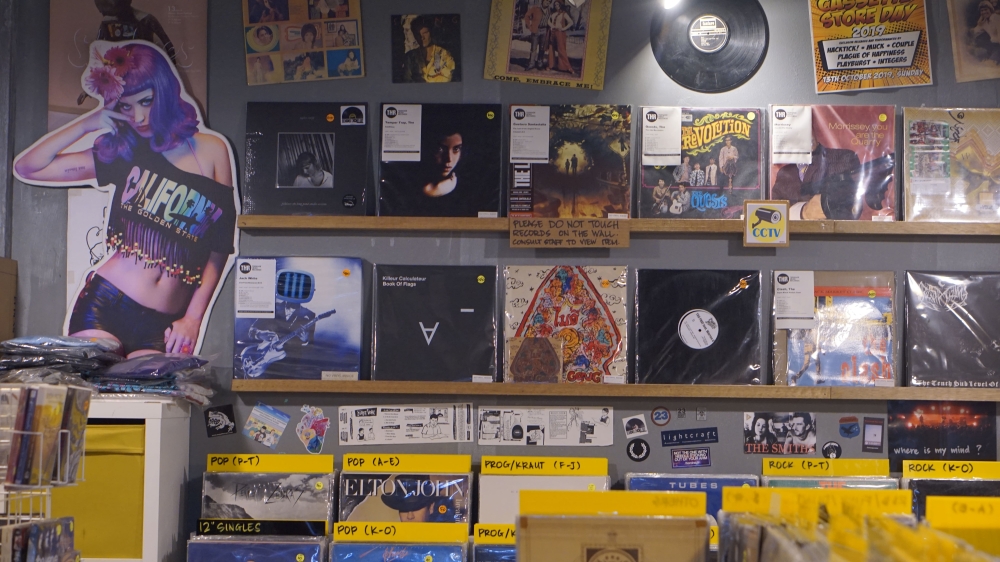
Teenage Head Records (THR) in SS14 Subang Jaya has been operating for nearly 10 years now and is known as one of the prominent local record stores with an edge for alternative rock music.
Store manager Faisal Hariz Roshdi told Malay Mail that the store's inception came about after the revival of physical format music back in 2010 which prompted the owners — who are music lovers and collectors — to open a record store here.
For THR, most of their sales comes from vinyl records followed by CDs and then cassettes, and Faisal agrees that factors contributing to the recent rise of physical sales includes the influx of new artists opting to release physical versions of their albums.
This includes big names in the music industry at the moment such as Taylor Swift, Billie Eilish, Blackpink and BTS just to name a few.
“The trend is always changing and as of now, I’ve seen a few types of customers – the first one is the music collectors, who would buy records because they really want to listen to it and add it to their collection.
“Then there are those who would buy records or albums just for that one specific artist, these are the fans such as the Swifties (Taylor Swift’s fanbase).
“And we also have people who would just buy some old vinyl for decorations because of the big covers and design aesthetics while others buy new vinyls as well,” Faisal said, pointing out that they have a RM10 used vinyl bin for customers to choose from.
Faisal who has been with THR for over eight years now, said that he has also seen how viral and trending songs on social media contribute to the sudden rise of sales for certain albums or artists such as for American dream pop band Cigarettes After Sex (CAS).
“Taylor Swift is considered our recent bestseller but before that, everytime we stock up on CAS, it's always sold out.
“The age group is also different – initially the age group was probably late 30s or early 40s but then we suddenly started seeing younger crowds from 20s to early 30s who are looking for CAS.
“And I did ask one of the customers why, and they said it's because one of the songs had gone viral on TikTok.”
Faisal added that other albums and genres that has been doing surprisingly well in recent years includes the 2010 coming of age film Submarine soundtrack by Arctic Monkeys frontman Alex Turner and the sudden demand for Japanese city pop genres.
“I never thought Japanese city pop would be as big as it is now. We did try to bring some into the shop and back then, we could sell it for around RM100 to RM120.
“But post Covid 19, the genre has suddenly grown and some of the titles or albums now can reach up to RM400,” he said.
Keeping physical formats alive
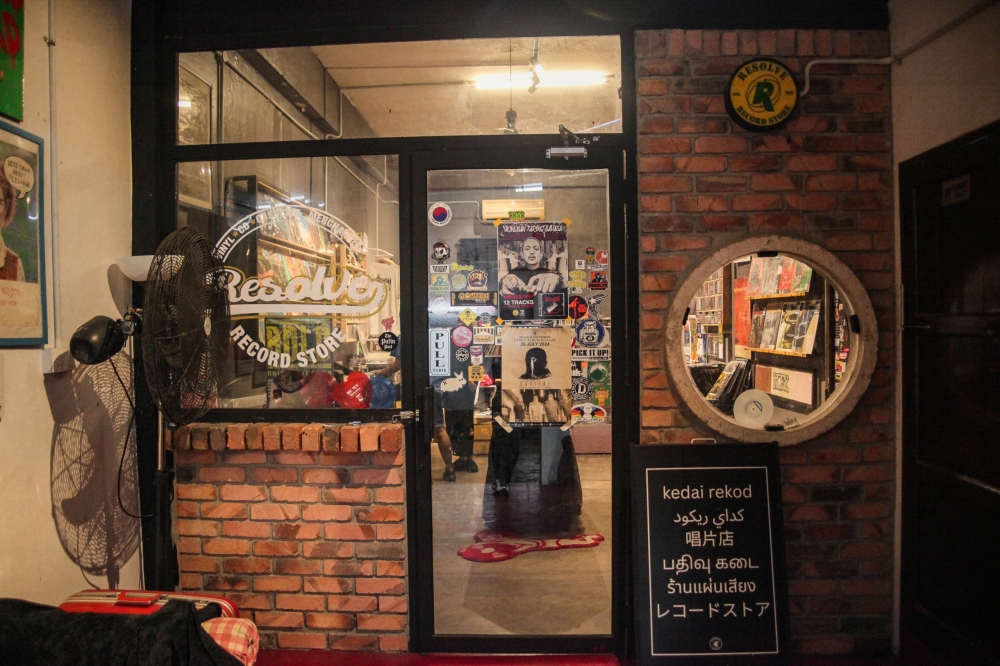
Sungai Petani record store Resolve Records which was founded by Muzammir Khiran Mohamed and three other partners have also enjoyed a boom in vinyl sales particularly during their first year of operations in 2020.
Muzammir said that the global lockdown due to the Covid19 pandemic resulted in reduction of prices for bulk goods including for used vinyl records and luckily for Muzammir, one of his partners was based in Japan – and they managed to buy off as many used vinyl records as they can at that time.
“At that time, we were amongst those who were selling vinyl for cheaper prices and it didn’t become an issue because the stuff that we got at that time was already cheap.
“The Beatles records usually sell for RM150 and above but at that time, we were selling it for around RM95 to RM100 only.
“Because Japan has so much stuff, they had no choice but to sell it at a cheaper price to clear their stocks, and the timing was perfect for us and we went all out during the first year.”
Best selling records include used hip hop vinyls as well as soundtracks from famous animes such as Doraemon, Kamen Rider, Godzilla, Ultraman and Gundam.
As an avid supporter of the local music scene, Resolve Records also helps new underground bands and artists produce their physical albums be it on vinyl, CDs or cassette tapes.
They also lend a hand by forking out the capital for the physical album production, taking a percentage from album sales to cover production costs and once the cost is covered, the profit is then distributed equally.
Among best-selling local releases include local rapper Yarobin Yashar, which was a collaboration with independent label MostHatedByAllRecords.
“For me the people who should be pushing for the return of physical format should be the artist instead of record stores.
“Because that shows how much you appreciate your own art and when you release anything physical, you’ll know that the ones who are buying your stuff are your true fans.
“So you should consider spending a bit more on physical releases, so your work of art could be immortalised.”
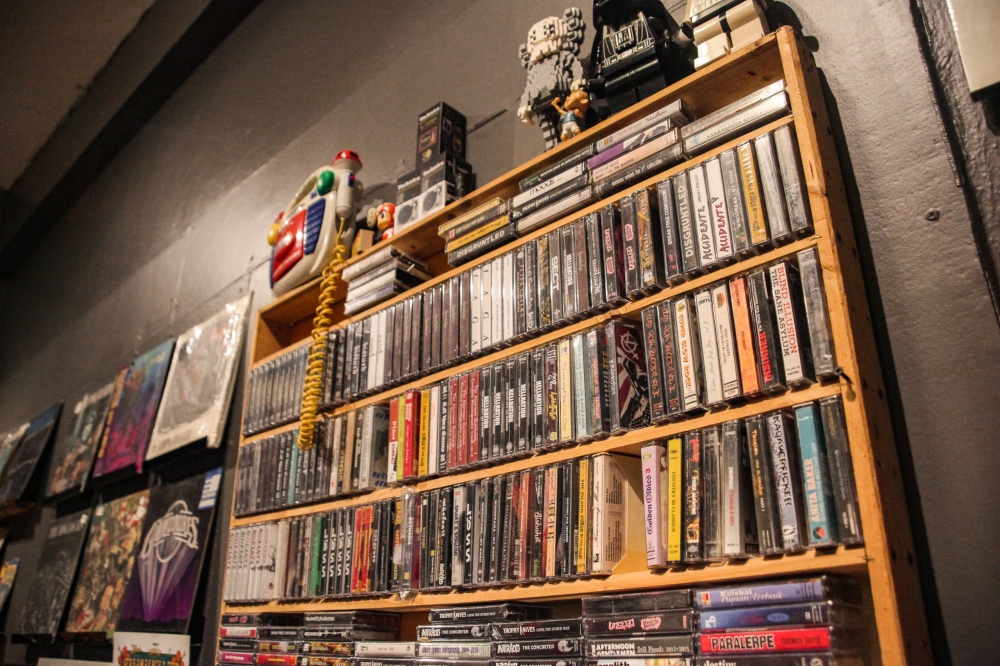
Muzammir said that one of the reasons he chose to open Resolve Records was to further spur the interest of younger generations on physical format music and said that he would often have local youngsters coming to the store asking about vinyl records.
“I won’t push them to buy but I would tell them if they are interested, they can come around the store and just enjoy the music here on our players.
“I would then share some tidbits with them about the sound, the album variants, just for them to get the feel and understand it more.
“If you manage to spur their interest, you create a new customer who in the long run would extend the livelihood of these physical format music by collecting them.”
Preserving a piece of history
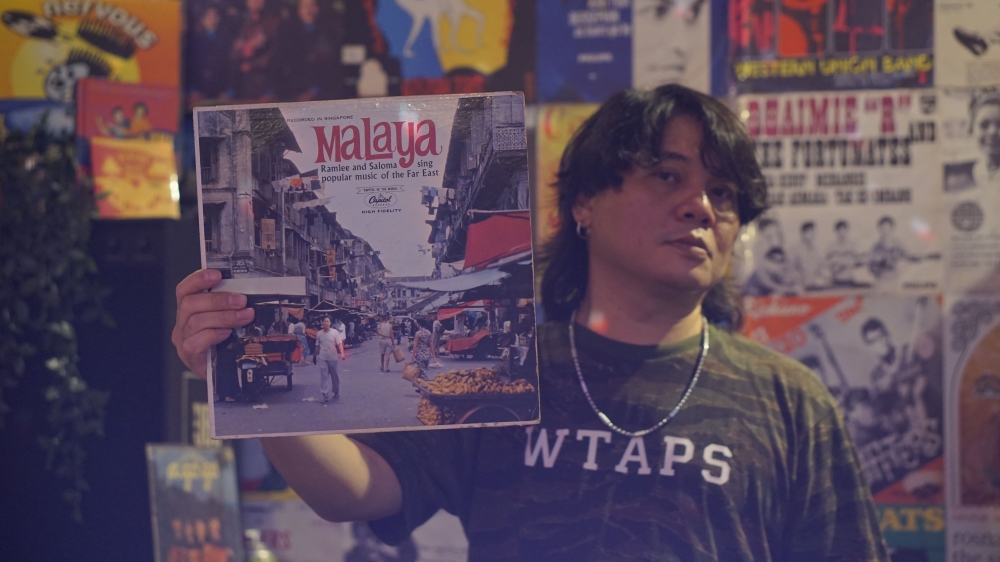
Nestled amongst the shops at the Pasar Besar TTDI KL (TTDI Wet Market) on the second floor lies Sputnik Rekordz – a haven for those looking to indulge in music from the Southeast Asian region.
The store which opened in 2018 was founded by musician Naza Mohamad who’s, an avid record collector who has been carefully collecting vinyl from the late 50’s onwards by artists around the region including from Malaysia, Indonesia, Thailand to Cambodia.
Sputnik made a name for itself for being one of the go-to record shops around the region for those looking to find rare records from the past and according to Naza who has been collecting since the 90s, his archiving efforts took tremendous patience and of course costs.
“I am not only collecting materials from Malaysia, but regional stuff as well. Although I don’t understand their languages, I would still buy it.
“It’s a long journey but it is my passion and most of the time I try to find out about the background behind the vinyl.
“For instance a vinyl from the pre-Pol Pot era, that would fetch a huge price, and we do have a few records from that era and its very expensive which could reach up to RM20,000,” Naza said.
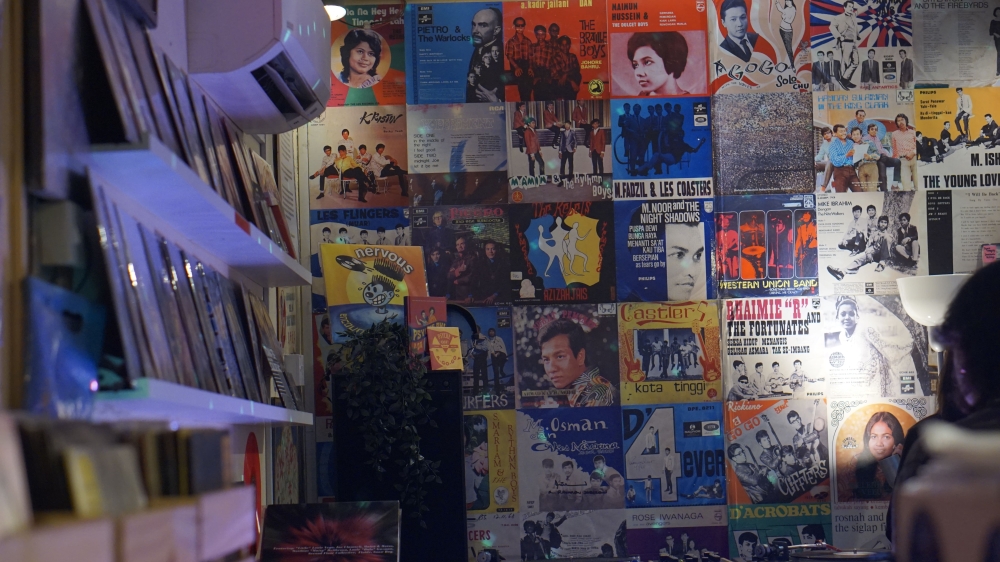
The former OAG guitarist also shared that among records by local artists that currently fetch a high prices in the reseller market includes vinyls by Datuk Sheila Majid and the legendary Tan Sri P.Ramlee.
“Sheila's vinyl can reach around RM2,000 to RM3,500 because during her time, the vinyl wasn’t sold for the public, it was for radio use only as during the 80s as radios were still playing music via records.
“So all of the local radio stations were provided with her vinyl and there’s around 500 pieces left.”
Naza said he was happy to see the archiving culture in Malaysia growing but was not so ecstatic with the revival of physical formats due to fears of another wave of physical format piracy – which was one of the factors that killed off CDs in the 90s.
“I don’t want it to be too big like the CD or VCD era with all its piracy issues. It’s better for it to be in a controlled environment.
“Some people when they see profit, they will take advantage of it.
“Although there’s no piracy for vinyl now, who knows in the future especially with technology nowadays, anything could happen.”






















